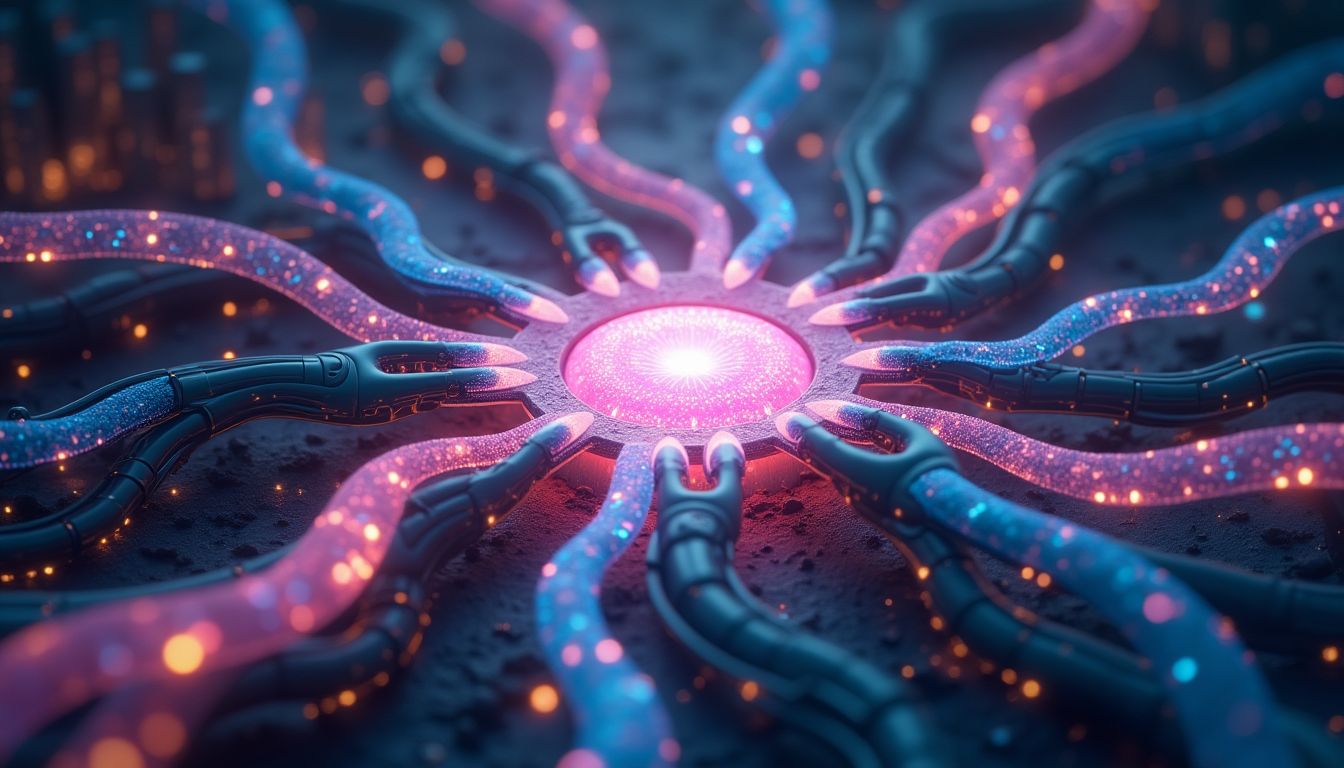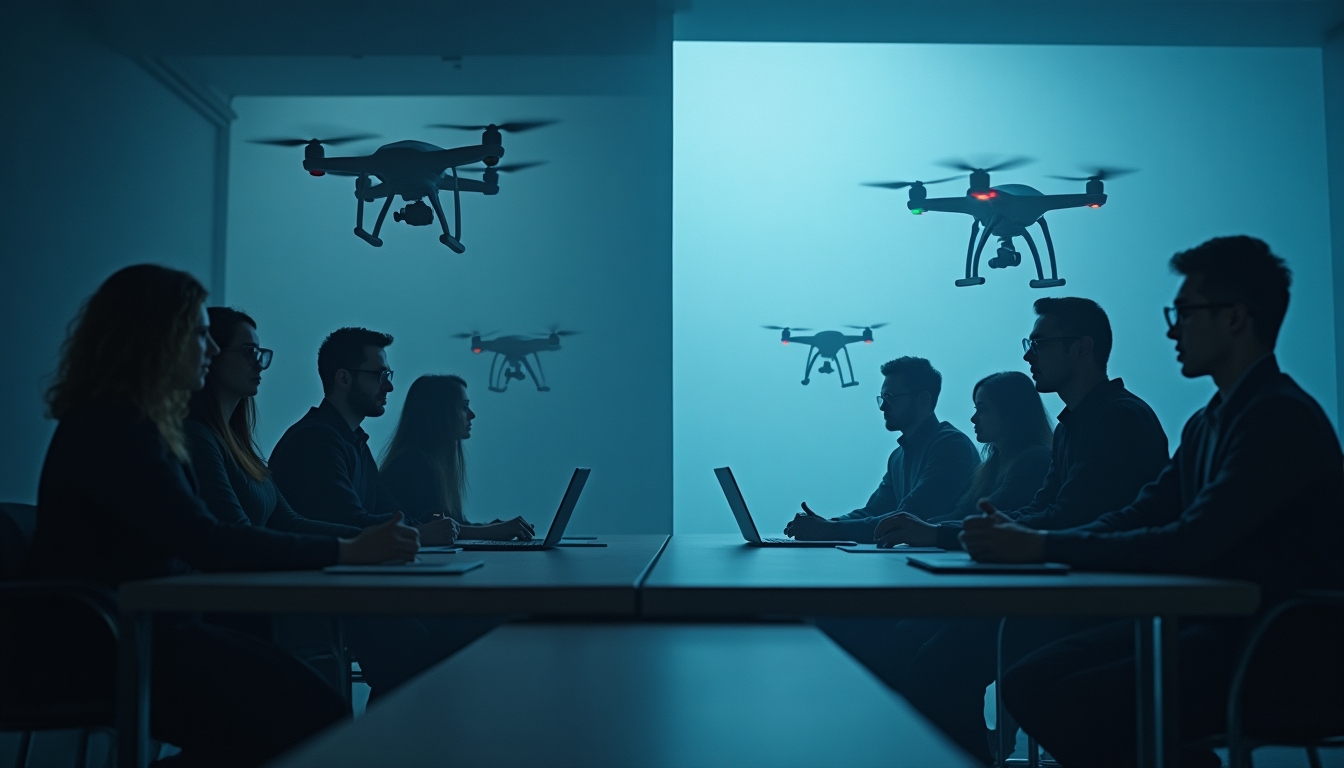In a world teetering on the brink of a technological revolution, Microsoft AI has just given us a tantalizing glimpse of what's to come in 2025. Like a plot twist in your favorite sci-fi movie, these revelations are not just about what to expect, but about reshaping the very framework of our interaction with technology. As Mustafa Suleyman—the distinguished head of Microsoft AI—revealed, we are on the cusp of witnessing the inception of AI with infinite memory. Imagine getting into a chat with your AI about your inventive idea at 2 AM and it remembering the conversation months later—no more ‘Wait, what were we talking about again?’ post-crash moments.
Infinite Context Windows: A Revolution in Memory and Understanding
Visualize this: your AI as Dory from Finding Nemo but on memory-enhancing vitamins. It turns out, this isn’t just a fantasy concocted after binge-watching the Disney classic. Google has already spearheaded the project through their paper on "Leave No Context Behind: Efficient Infinite Context Transformers With Infinite Attention," which you can nerd out on here. This revolutionary paper proposes a method to revolutionize how AI models manage longer texts with less memory consumption and faster processing. With a new approach named 'Infinite Attention,' AI transforms into the smartest notepad, compiling only pivotal points of what has been read rather than drowning in details.
Memories that traditionally worked under pressure, like a short-order cook firing away in a busy diner, can now be paired with summarized recollections, enabling the AI to provide the perfect recipe consistently. Users will look back at 2025 as the year AI graduated from goldfish memory spans to elephantine reminders, holding onto even the most mundane conversations to develop long-lasting, meaningful interactions.
How 'Infinite Context' Shapes Our Future
So, what if we harness such powerful AI memory? Picture an AI that monitors personal growth and tracks the evolution of ideas over decades, like a time-traveling friend jam-packed with shared experiences. Or imagine integrating it into massive libraries of human knowledge. We're not just tinkering with potential here; we're talking about redefining human proximity to technology, unlocking a utopia of innovation while subscribing to thrill and autonomy.
Smash cut to an excited Eric Schmidt, former CEO of Google, forecasting the next major leap: computers that comprehend infinitely long text chains more robustly than ever before. Schmidt's passionate projection promises a seamless exchange of infinite questions into solutions, making monumental progress into realms like science, medicine, climate change, and more.
The Coming Age of Recursive Self-Improvement
Now, enter the sandbox of AI—that exhilarating place where AIs build themselves through recursive self-improvement. Imagine an AI bright enough to code a better version of itself using tools around it, fashioning a veritable Matryoshka doll of intellect. While it sounds disarmingly like a plot from the Terminator franchise, this self-enhancing trait could soon be upon us. Suleyman posits the dawn of self-improving AI arriving sooner than 2030. Does this signal the rise of Skynet? Probably not, since the narrative here isn’t world domination but educationally crafting Lego-like layers of intellect.
Let's flesh this out: a future where AI systems launch new products, orchestrate websites, and handle logistical nightmares—all on their own. It's a truth stranger than fiction, making even the most skeptical tech-evangelist tingle with delight. But, just how slender this timeline can be is still up for debate.
Beware: Agent Implementation Challenges Ahead
Taking a step into the realm of AI agents, it becomes apparent that while thrilling, it's a walk on the razor’s edge. The most romanticized visions of AI have these agents with glowing halos, accomplishing complex tasks flawlessly. Yet, in actuality, there's a tougher climb: current AI agents get things right at less-than-reassuring percentages. Whether it's the likes of the renowned Chatterbot concepts or the venerated ML models, champions of creating real-world usability are still in short supply.
Our patience must extend into 2026 for these agents to work cohesively, aligning seamlessly with our needs without compromising reliability—a future we all ache to experience. With error rates that can easily baffle your grandma’s knitting club, the painstaking yet vital work to bolster AI reliability continues.
As Dar Amade, an AI visionary, aptly describes the balance between what AI dreams should accomplish vs. its demanding undertakings, the goalpost in the AI field is clear: further scaling is essential—like a runner getting that last elusive breath before the finish line—to disentangle AI from novice levels to trailblazers.
The AI of the future maintains friendships. An ambitious mind that outpaces our imaginations and deeply intertwines into everyday processes persists as the cornerstone of global transformation. But, all these triumphs start with the step of memory in 2025.
How are you preparing for this future of infinite context and recursive self-improvement? What dreams or nightmares does the AI kingdom hold for you? I invite you to ponder these questions and share your thoughts. Become part of the iNthacity community, a "Shining City on the Web," by joining us. Like, share, and let's continue this debate—because change is not just around the corner; it's staring you right in the face.
Wait! There's more...check out our gripping short story that continues the journey: The Journey Begins
Disclaimer: This article may contain affiliate links. If you click on these links and make a purchase, we may receive a commission at no additional cost to you. Our recommendations and reviews are always independent and objective, aiming to provide you with the best information and resources.
Get Exclusive Stories, Photos, Art & Offers - Subscribe Today!
























Post Comment
You must be logged in to post a comment.